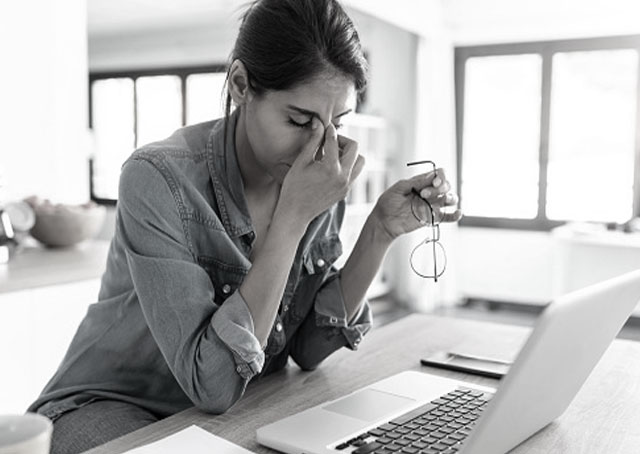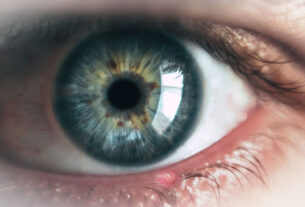Stress develops when a person perceives that, they cannot properly cope with the demands being made on them or with the threats to their well-being. Certain situation that is stressful only if the person perceives them as a stressor. What is emotionally or psychologically stressful
to one person may not be stressful to another. In humans, there can be great variability among individuals in response to the same stressor. Stress perception and personal meaning linked to the potential stressor influence the way an individual responds to the stressor.
FACTORS AFFECTING AN INDIVIDUALS RESPONSE TO STRESS
Internal Factors
- AGE
- HEALTH STATUS
- PERSONALITY CHARACTERISTICS
- PREVIOUS EXPERIENCE WITH STRESSORS
- GENETIC BACKGROUND
- HARDINESS
- SENSE OF COHERENCE
- ATTITUDE
- NUTRITIONAL STATUS
- SLEEP STATUS
External factors
- CULTURAL AND ETHNIC INFLUENCES
- SOCIOECONOMIC STATUS
- SOCIAL SUPPORT
- RELIGIOUS / SPIRITUAL INFLUENCES
- TIMING OF STRESSORS
- NUMBER OF STRESSORS ALREADY EXPERIENCING
Excessive stress may result in physiologic changes which are important to the adaptive survival of the individual. However, if stress is more, these same physiologic responses can be maladaptive and lead to some harm and certain disease. When a person sustains chronic unrelieved stress and impaired decision making. Furthermore, stress can also result in a wide variety of differences in behavior. These include people moving from others, becoming very calm and quiet or unusually talkative, less or excessive food intake, drinking alcohol excessively, or becoming irritable.
Chronic or intensive stress may have profound effects on brain structure and function, especially the hippocampus. The hippocampus has a key role in long term memory and is also vital for cognitive functions such as spatial learning.
WHAT CAUSES STRESS
A stressful event—For Eg, A sudden appearance of a snake on the path or the fear of losing your job when the boss yells—triggers an increase of hormones, including adrenaline and cortisol, that surge through the body.
These hormones hike heartbeat and the circulation of blood in the body to cope with quick action, so utilize fat and sugar for immediate energy, determine attention to protect from danger, prepare muscles for movement, and more.
This type of lifesaving response is short-term, life-threatening problems, long-term difficulties include daily road traffic problems or personnel problems—a few of the many challenges that can hijack the stress response today.
EXAMPLES OF DISORDERS AND DISEASES WITH STRESS COMPONENT
- Depression
- Dyspepsia
- Eating disorder
- Erectile dysfunction
- Fatigue
- Fibromyalgia
- Hypertension
- Headaches
- Insomnia
- Irritable bowel syndrome
- Low back pain
- Menstrual irregularities
- Peptic ulcer disease
- Sexual dysfunction
WHAT ARE THE SIGNS AND SYMPTOMS OF UN-MANAGED STRESS?
Excess stress may lead to a variety of emotional, behavioral, and even physical signs and symptoms, and the symptoms of stress vary from one person to another
Common physical symptoms generally reported by those experiencing excess stress include
- changes in sleeping pattern and difficulty in sleeping (insomnia or sleeping too much)
- muscle tension
- muscle aches
- headache, gastrointestinal problems
- fatigue.
Symptoms of the many preexisting medical conditions can also worsen throughout times of stress. Emotional and behavioral symptoms that can aid in excess stress include
- nervousness
- anxiety
- Excessive or less intake of food
- loss of enthusiasm or energy, and mood changes, like irritability and depression.
Of course, none of these signs or symptoms means for certain that there is a shooted stress level since all of these symptoms are often caused by other medical and/or psychological conditions.
It is also known that people under stress have a greater risk to evolve unhealthy behavior patterns, such as excessive intake of alcohol and drugs, smoking cigarettes, and poor personnel hygiene, lack of exercise, and nutritional choices, than their less-stressed counterparts. These
unhealthy behaviors may lead to a rise in the intensity of symptoms related to stress, often leading to a “vicious cycle” of symptoms and unhealthy behaviors
HOW TO DEAL WITH STRESS
EXERCISE
Exercise and being active is a better method to combat stress. Although it may seem contradictory, putting your body through physical stress can relieve mental stress. To get the maximum output of exercising, it is required to be a regular part of your routine. For several reasons, you are less likely to experience anxiety and stress if you exercise daily. These include exercise reducing your stress hormones and withdraw feel-good chemicals, exercise enhance your quality of sleep and of course improve your confidence.
MEDITATION
Meditation has many track record health benefits and is a highly efficient method to reduce stress and maintain a healthier lifestyle. With enough practice, meditation will be a much easier habit to maintain and more of an effective one as well, as it builds resistance to stress over
time. Making the practice to learn meditation can change your experience of anxiety and stress in your life
A basic guide to meditation
- find a quiet place
- make sure there are no distractions
- sit in a comfortable position
- close your eyes
- stop thinking, so your brain can stop processing information coming from your senses
- Take word or phrase, find a word or phrase that means something to you, whose sound or rhythm is soothing when repeated
- breathe slowly and practice relaxation breathing
- try saying a word or phrase silently to yourself with every exhalation
- the monotony will help you focus
- do not be concerned when other thoughts come to mind, just acknowledge then and return calmly to your word or phrase
- continue for 10 to 20 minutes, but even 5 minutes can leave you feeling calm and refreshed
- rise slowly
- practice once or twice daily
LISTEN TO MUSIC
Listening to music can have a spontaneous calming effect on our minds and bodies and therefore a great key for how to deal with stress. That’s right, music has a greater role in our physiological functions, it aids in slowing the pulse and heart rate, lowering blood pressure, and
decreasing the levels of stress hormones. Music can perform as an effective stress management key. As music can catch one’s attention, it also acts as a distraction from our thinking. This means that it can be a great tool for meditation, helping to prevent your mind from overthinking
WATCH TV
Research shows that watching TV has a vital role to reduce stress and relieve anxiety. Watching TV can help to reduce your cortisol levels, AKA “the stress hormone”. High levels of cortisone are responsible for many health issues number of health issues. These health problems include higher blood pressure and cholesterol, weight gain, a weakened immune system, and depression.
PLAY GAMES
It may sound simple but next time when you are feeling stressed, play a game! Playing a game is an effective tool to relieve stress and distract your mind with something fun
BREATHING EXERCISE
The way of breathing aspect differs from one person to another. When a person has high stress, his muscles will become tense and breathing becomes shallow and rapid. Therefore one of the easiest and most effective keys to preventing the stress response is to breathe deeply and slowly
Relaxation breathing techniques
- sit up straight with your backflushed to the support of the chair and your feet flat on the floor
- keep your hands on your lap, thighs, or side arms of the chair
- take in a deep breath through your nose to a count of four
- hold your breath and take a count of four
- release your breath through your mouth to a count of four
- rest for a count of four
- repeat the cycles four times




